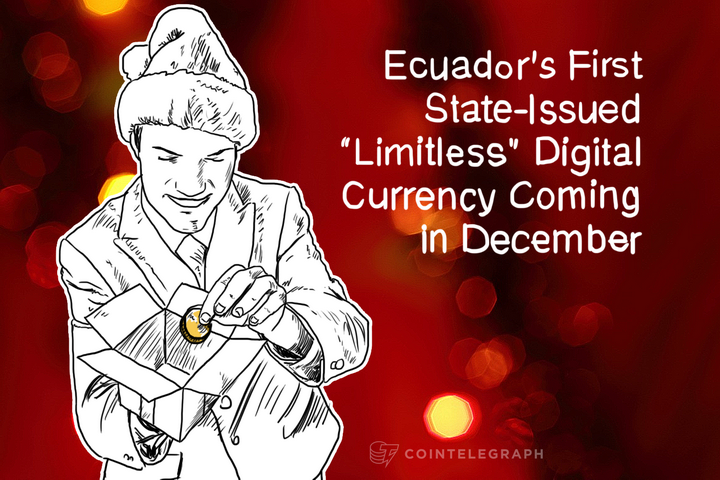Ecuador has announced that its government-backed digital currency will be ready for circulation by December in a move which analysts dispute is tantamount to replacing the US dollar as its legal tender.
The as yet unnamed currency, WKYT reports, was approved in a session of Ecuador’s National Assembly in July. At the same time, ‘stateless’ digital currencies including Bitcoin were outright banned. A presentation with additional details on the virtual money was published on the Ecuadorian government website.

Commentators were quick to rebuke the concept, which Ecuadorean President Rafael Correa says has been a major hindrance to the scheme coming to fruition, calling them “pseudo-analysts who have appeared in the media.”

- Rafael Correa
Those parties may have good reason to do so, however, as Correa stated that the new currency would not resemble Bitcoin in its make-up. Specifically, there would be no cap on the amount available for production, something which Nathalie Reinelt, an emerging payments analyst with the US-based Aite Group, warned WKYT could allow the government to create as much as it wishes.
Suspicions cast, it would seem that Ecuador will need to prove its best intentions if it is to use the currency to improve its financial standing, currently centered around US$11billion of debt.
Nevertheless, for a state which has had no control over money emission since it took on the US dollar in 2000, the desire to regain this is no doubt strong and something which the government sees as a basic entitlement enjoyed by the vast majority of countries.
The Central Bank representative in charge of administering the new currency said however that there were no plans afoot to replace the US dollar, and the new currency furthermore would have limited uses. Financial tools will not be applicable for purchase, and state employees will continue to receive their salaries in USD.
Ecuador is somewhat alone in its hostility towards digital currencies, with Bolivia being the only other South American country to adopt an outright ban. El Salvador, which has been using the US Dollar exclusively since 2001, permits the use of Bitcoin.
Expert commentary
Patrick Dugan: “It sounds like they're going to do something fairly simple that has dollar-pegged tokens transmitting value to pay taxes and merchants. It sounds like their own Paypal essentially, with closed rails. The comparison to a mobile carrier's network suggests something closer to that than even a fork of a proof-of-stake coin. The inability to buy bonds with it also suggests something that lacks any crypto 2.0 features such as complex token issuance and dividend payments, a country issuing crypto-bonds or pass-through-entities for its registered bonds would be a good idea.
“I think the one liner for this event is: Ecuador - it's ain't Venezuela.”
Did you enjoy this article? You may also be interested in reading these ones:
- Ecuador Embraces ‘Electronic Money,’ Misses the Whole Point
- SurBitcoin Launches First Bitcoin Exchange in Venezuela
Coin HR - the best way to find a perfect bitcoin job or an applicant for your vacancy. We connect talent with opportunity!


